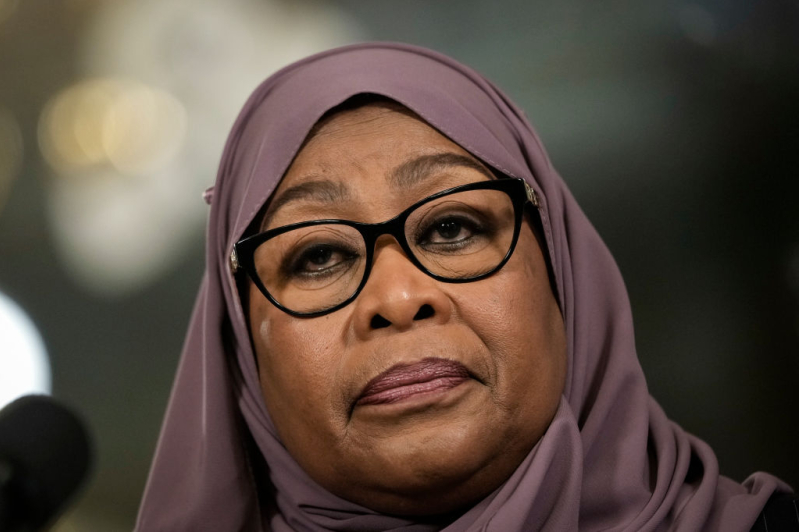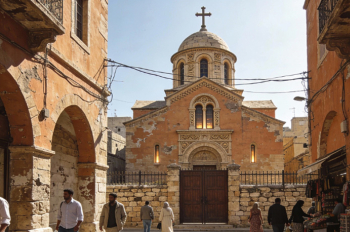
U.S. Senate Foreign Relations Committee Chairman Senator Jim Risch has criticized Tanzania for targeting Christian leaders for speaking out against President Samia Suluhu Hassan’s “brutal regime” accusing the government of pre-election intimidation and abduction of critics.
Senator Risch condemned the silencing of critics ahead of the Oct. 29, 2025, general election through “abducting critics, torturing detainees, and jailing opponents.”
“This crackdown is not only an assault on Christians and other citizens,” posted Senator Risch on X, it also “threatens Tanzania’s stability, undermines U.S. security and economic interests, and risks pushing the country further into China’s embrace.”
The comment by the Senator comes after months of sustained intimidation of critics of President Hassan’s government.
A local news outlet reported that police arrested a pastor from the Evangelical Lutheran Church in Tanzania (ELCT) for allegedly inciting his congregants not to participate in the upcoming elections, which President Hassan is expected to win after the main opposition leader, Tundu Lissu, was arrested in April 2025 and has remained in detention since then.
"The pastor has not been abducted. He is in police custody for questioning after being accused of inciting church members not to go out and vote," the publication quoted Regional Police Commander Ahmed Makarani.
The same news outlet reported that police are searching for Sheikh Juma Silima in the Boay area for the same accusation of urging people not to vote.
Social media platforms have been flooded with unverified reports of Christian leaders being abducted and detained for opposing the government's handling of the political atmosphere in the country.
Unidentified assailants attacked Father Charles Kitima, the Secretary General of the Tanzania Episcopal Conference (TEC) and a vocal critic of human rights abuses, on April 30 at the TEC headquarters in Kurasini, Dar es Salaam.
Rights groups widely condemned the incident, which is believed to be linked to his outspoken criticism of the government. In recent weeks, Kitima had denounced the detention of Lissu as "unlawful" and accused authorities of manipulating the electoral process.
"Stealing citizens' votes, introducing fake or invalid ballots, and declaring someone who did not receive the majority of votes as the winner: that is evil, and it is the work of the devil," he said in one of his public addresses.
Hours before the assault, a video circulated on social media showing Kitima criticizing what he described as "lawlessness" within Tanzania's political system and urging authorities to guarantee free and fair elections.
After surviving the attack, he released a statement encouraging citizens to "stand firm in defending fundamental national issues" and to "not be afraid to pay the price for upholding justice and our national responsibilities."
Amnesty International documented how political rights have shrunk in the country in their report released on October 20, 2025, titled Unopposed, Unchecked, Unjust: 'Wave of Terror' Sweeps Tanzania Ahead of 2025 Vote.
"Between January 2024 and October 2025, Amnesty documented widespread abuses including enforced disappearances, arbitrary arrests, torture and other ill-treatment, and extrajudicial killings. Freedoms of expression, movement, and peaceful assembly have been severely restricted," Amnesty International said.
The report said that laws, including the Political Parties Affairs Laws (Amendment) Act, 2024, Cybercrimes Act, and Media Services Act, have been used to criminalize dissent, censor media, and control digital spaces.
"A 24-year-old content creator disappeared while another one reported abduction and torture. Popular social media platforms that many Tanzanians rely on for information, like JamiiForums and X, were also restricted and will remain banned during the election period," the report added.
Amnesty International also painted a worrying trend of abductions, enforced disappearances, and killings of state critics.
The government of Tanzania has denied these allegations by Amnesty International, calling their report unsubstantiated and misleading, according to Government Spokesman Gerson Msigwa.
Praying for peace
At a special interfaith prayer meeting on Oct. 26, religious leaders and government officials urged people to vote on election day while securing peace in the country amidst calls by the civil society for demonstrations on election day.
The Council of Pentecostal Churches (CPCT) in Kagera Province organized the prayers, in conjunction with the Baraza Kuu la Waislamu Tanzania (BAKWATA), the Supreme Council of Tanzanian Muslims, which included leaders from the two faiths who came to offer prayers for the upcoming general elections.
At the meeting, Bishop Elemes Magezi urged all Tanzanians to turn out in large numbers and elect their leaders while maintaining peace throughout the country.
At another interreligious prayer meeting in Tabora region, religious leaders emphasized the importance of keeping peace and staying united as a country even after the general elections.
Cardinal Protas Rugambwa stated that peace can drive the country forward and that the country should seek unity.
As voters prepare to cast their ballots, the calls for peace and unity from religious leaders stand in stark contrast to the reports of harassment and intimidation that have marked the campaign period.






